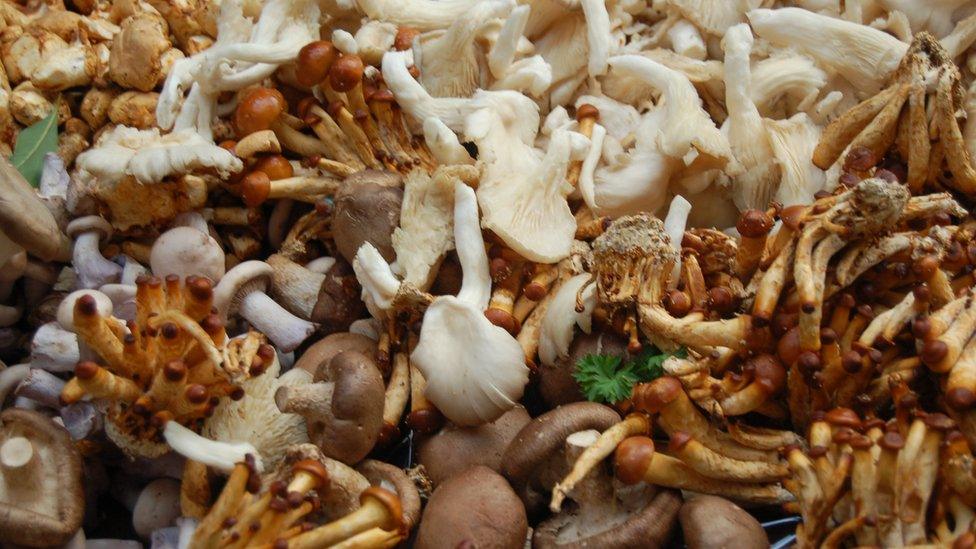2.5 million species of fungi yet to be discovered, but many under threat say scientists
- Published
- comments
Pupils head into the forest to learn how to find fungi
Experts have identified only 10% of an estimated 2.5 million different types of fungi which currently exist on Earth, according to a recent report from the Royal Botanic Gardens, Kew.
However, many of these unknown species may already be under threat from extinction researchers from the organisation say.
Some of them are believed to have already disappeared in the wild.
About 200 scientists from around the world contributed to the findings in Kew's latest report. They're calling for urgent action to be taken to protect them.
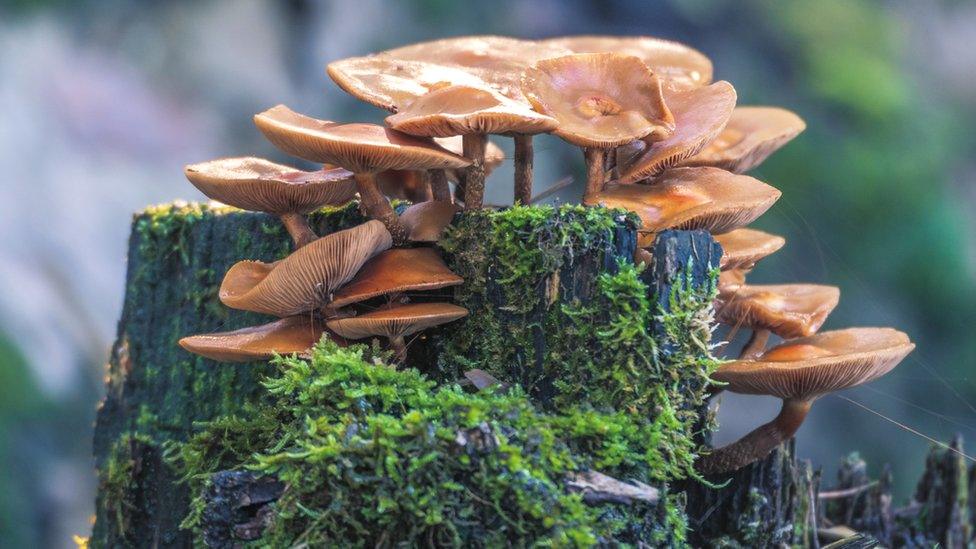
Scientists say there are more than two million types of fungi which are yet to be discovered
About 350,000 plant species are currently known to science, but as many as 100,000 still haven't been formally been given names.
Scientists say three in four of these plants are also already likely to be threatened with extinction.
To reach their conclusion, researchers compared data on lots of different types of fungi with the red list from the International Union for the Conservation of Nature (IUCN).
The IUCN red list includes thousands of different animal, plant and fungi species which are currently at risk of extinction.
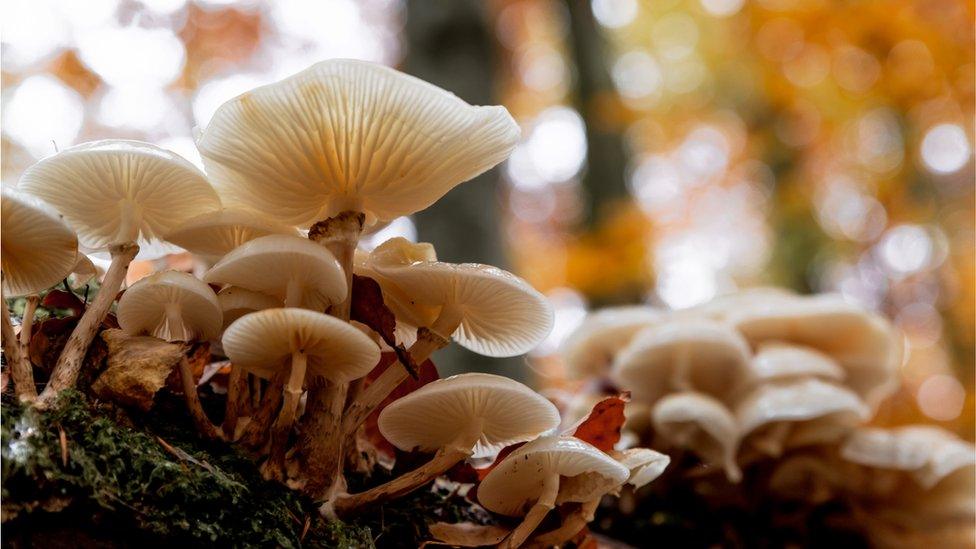
Experts are worried lots of fungi are at risk of extinction
Many of the trees, herbaceous plants and cacti which are yet to be discovered are probably hiding in the remote but biodiverse forests of Brazil, China or New Guinea, according to the report.
They'll now be targeted as part of the fight against climate change and biodiversity loss.
Laura Martinez-Suz is a research leader in mycology, which is the study of fungi, at Kew. She says it is vital to name and describe the plants so they can be preserved.
"We can share information with other researchers, we can try to decipher the roles that they have in ecosystems... and we can try to assess if they are threatened or not," she added.
Why are fungi important?
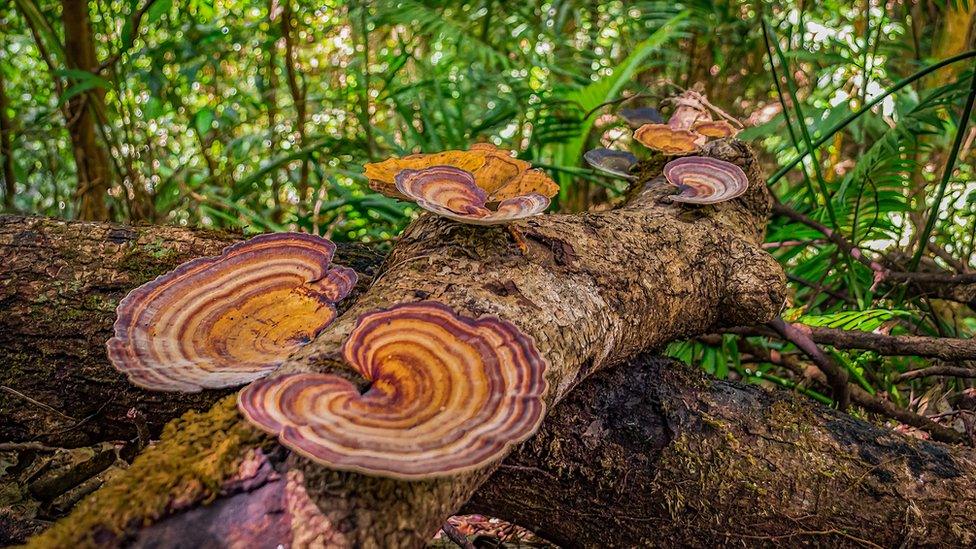
Fungi growing on a tree in Australia
Fungi can play a really important role in our world, with many seen as important sources of protein, vitamins and minerals.
Lee Davies is the manager of the world's largest collection of fungi, based at Kew Gardens.
He describes the collection he manages as "a huge untapped resource for potential new drugs or compounds that we could use" to treat conditions such as multiple sclerosis or certain cancers.
However, fungi are threatened by factors like air pollution or invasive species, and only one percent are on the red list currently.
Researchers want urgent conservation efforts to be put in place so them are treated the same as plants or animals.
- Published21 November 2021
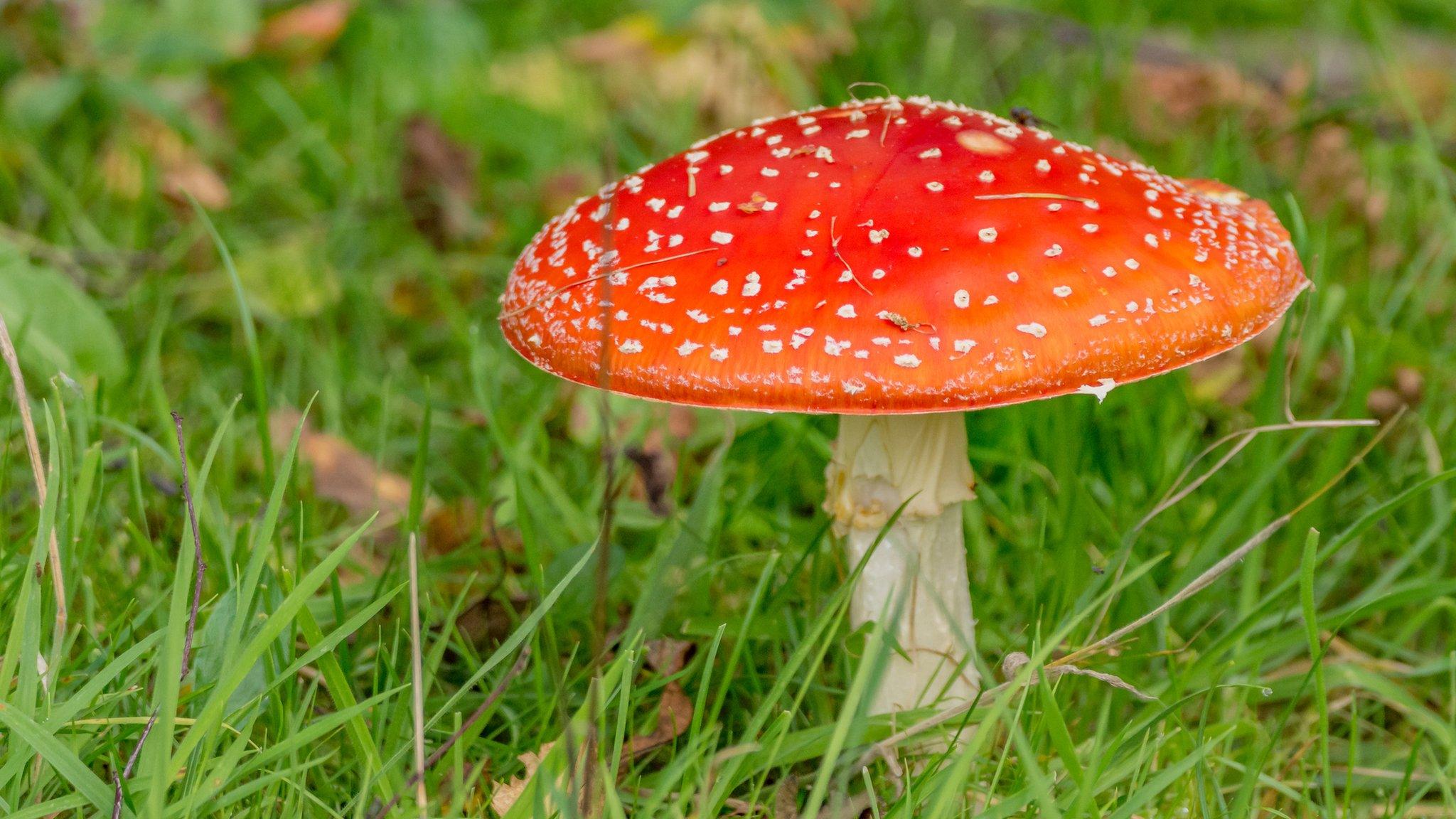
- Published23 May 2019

- Published21 March 2021
